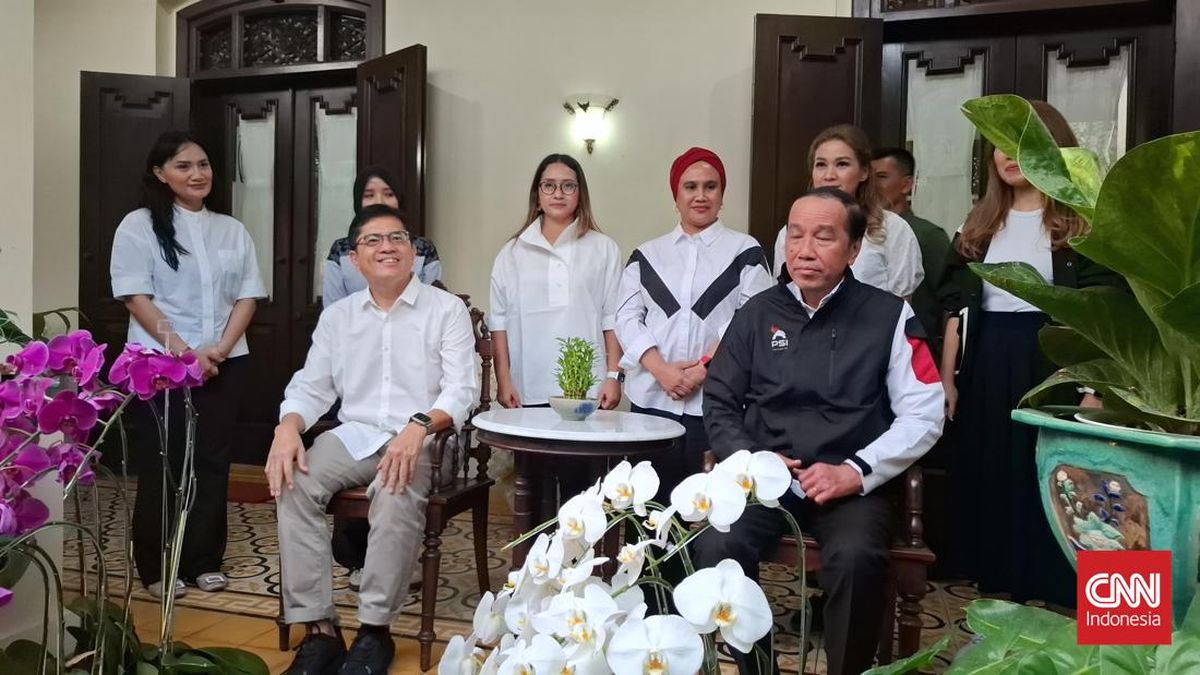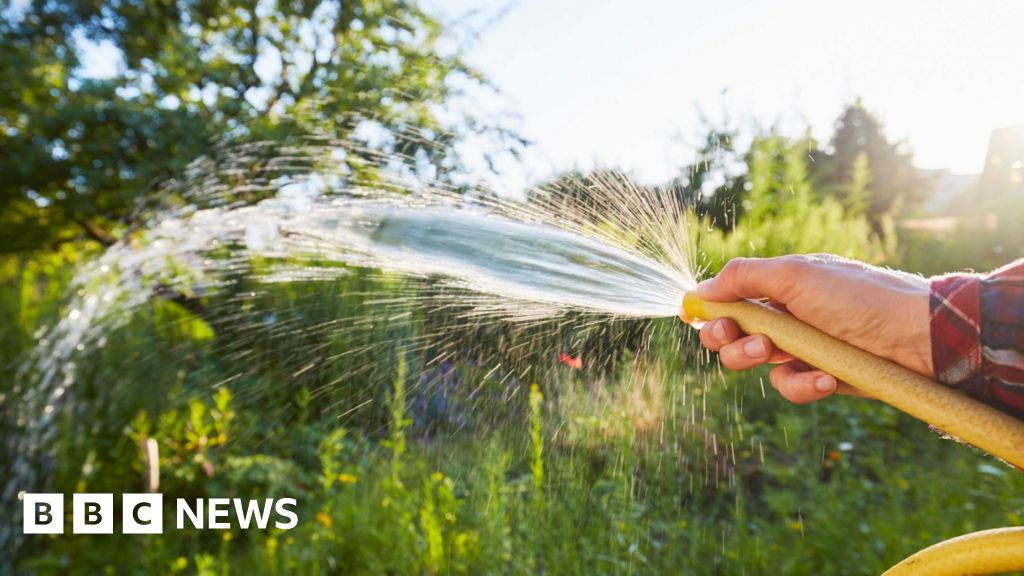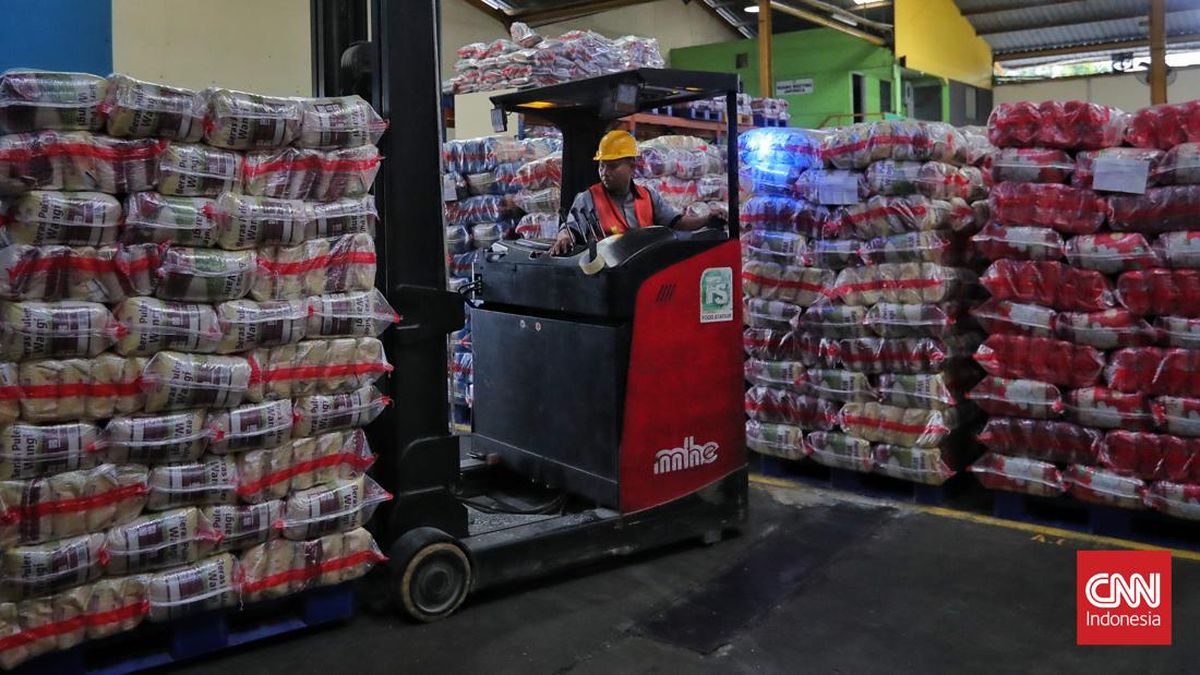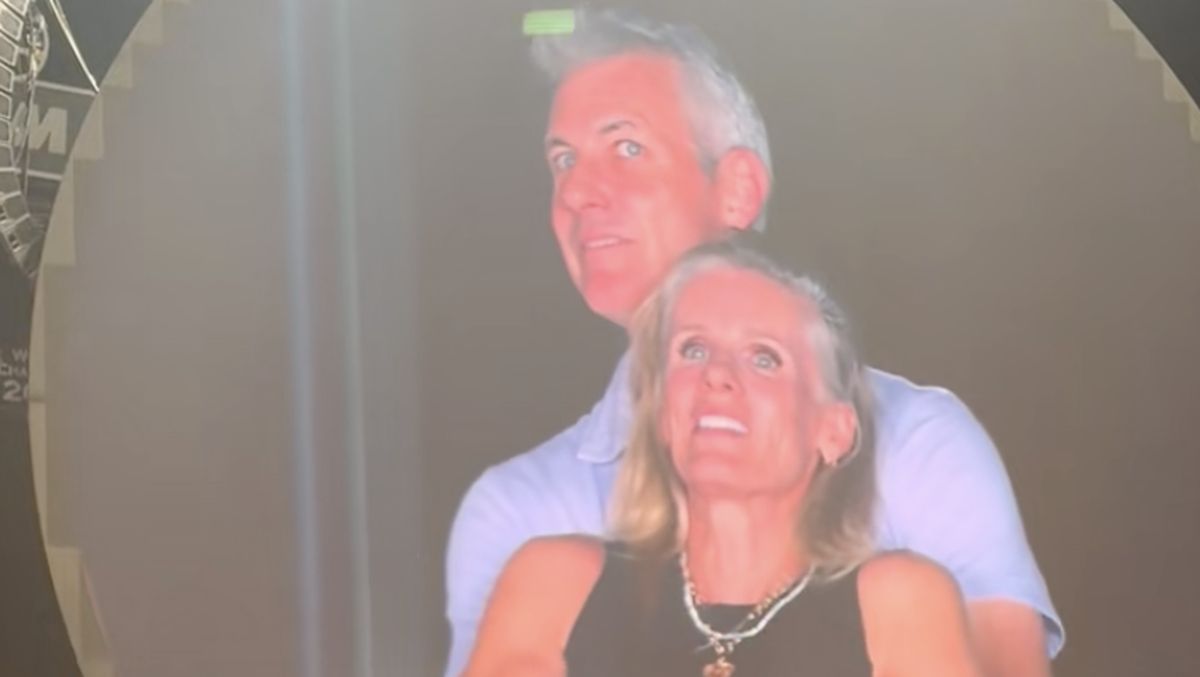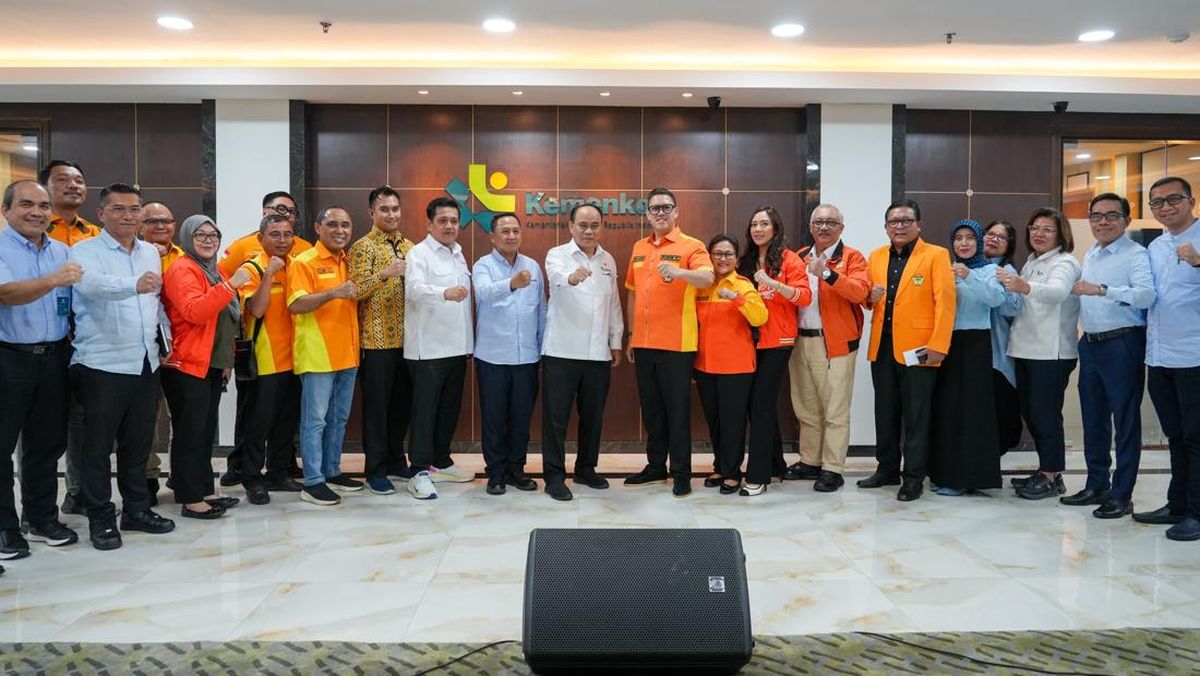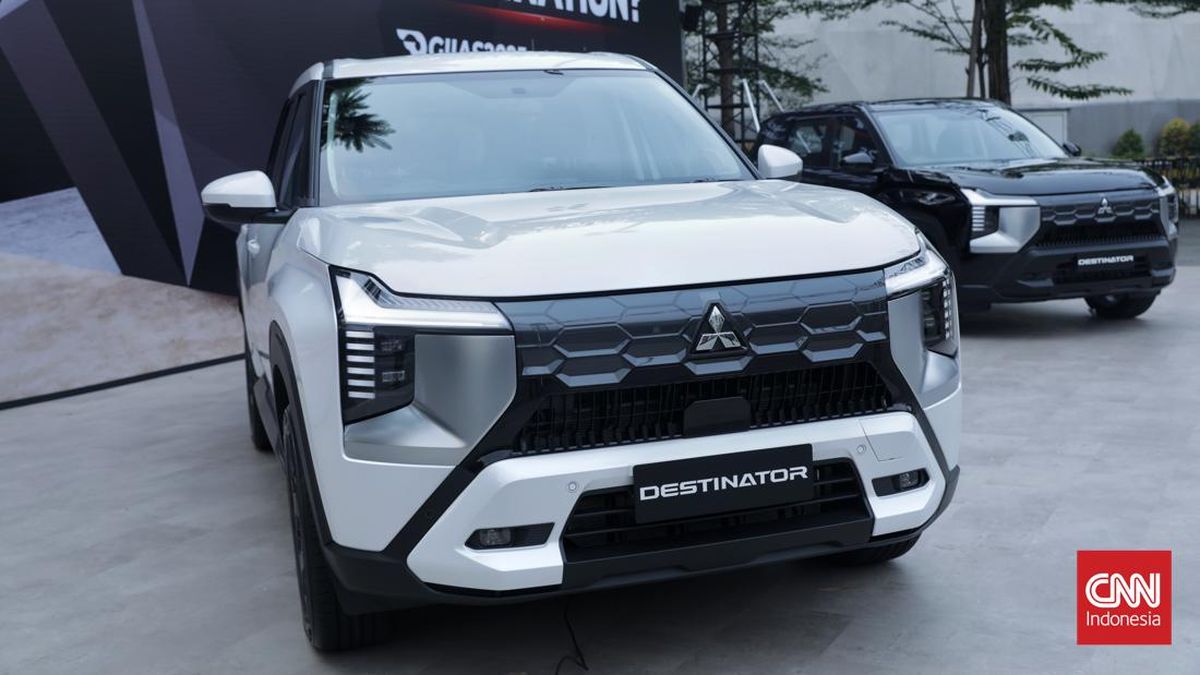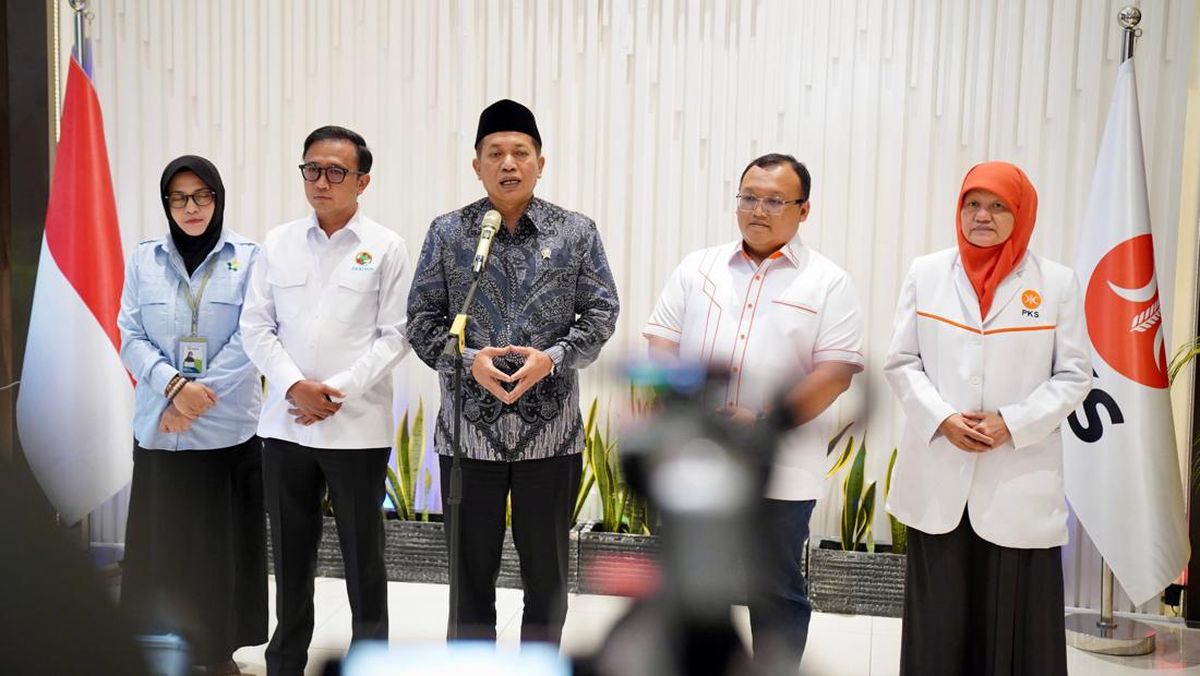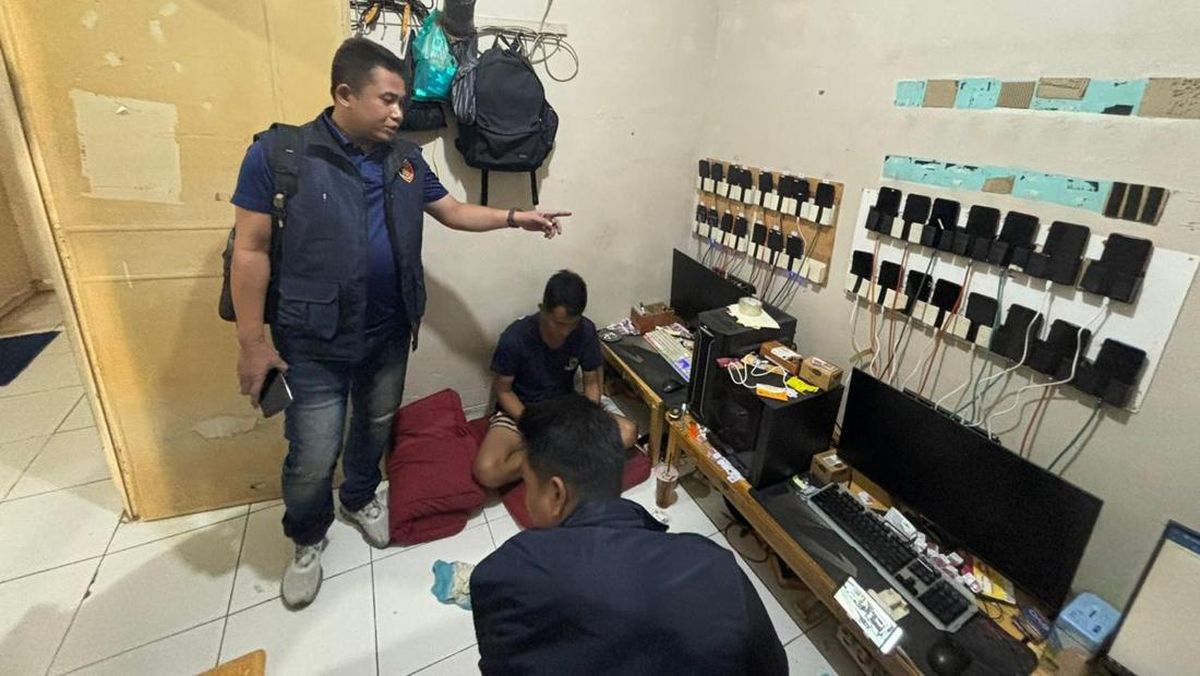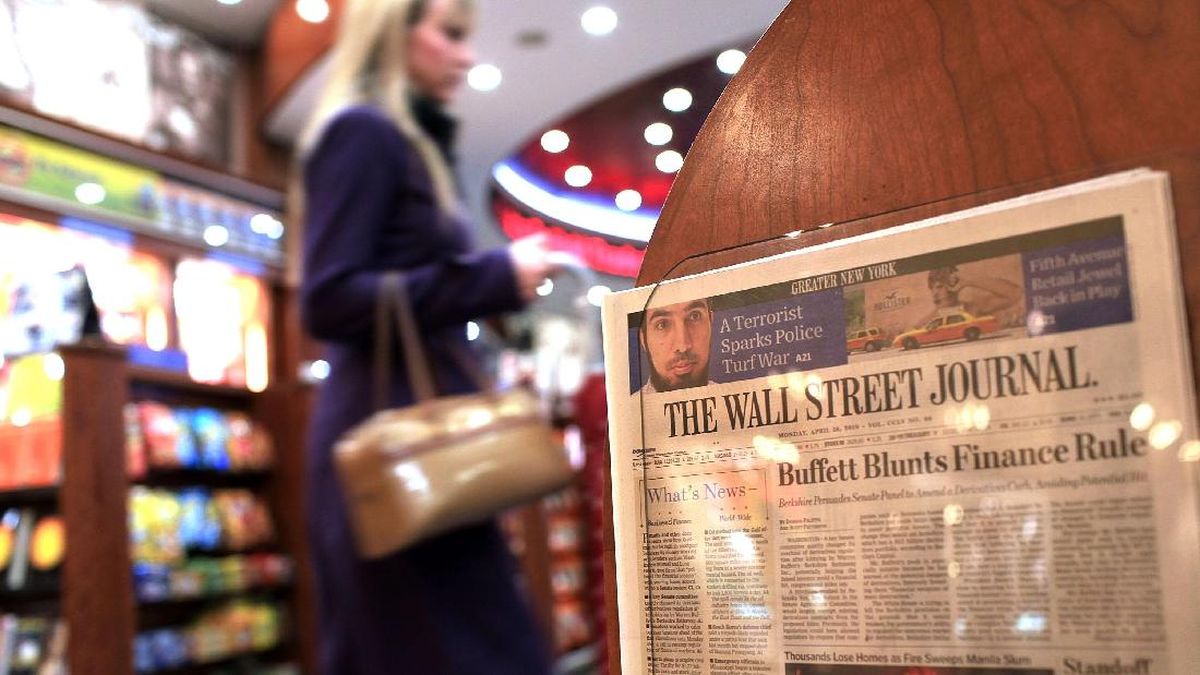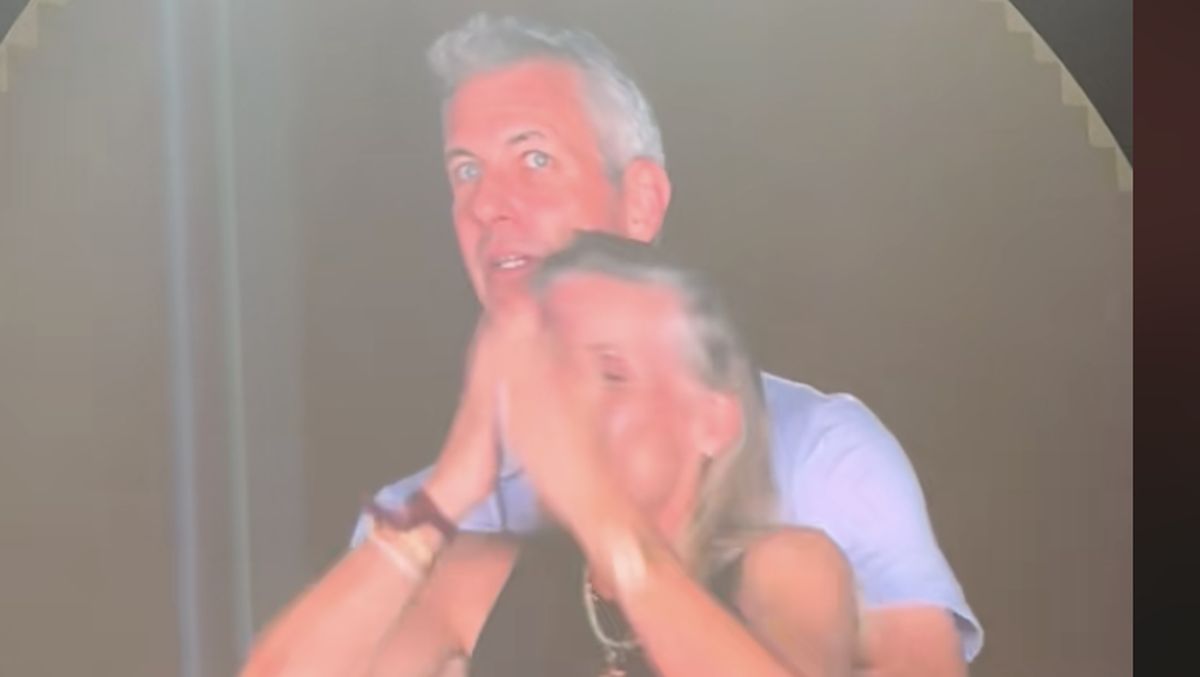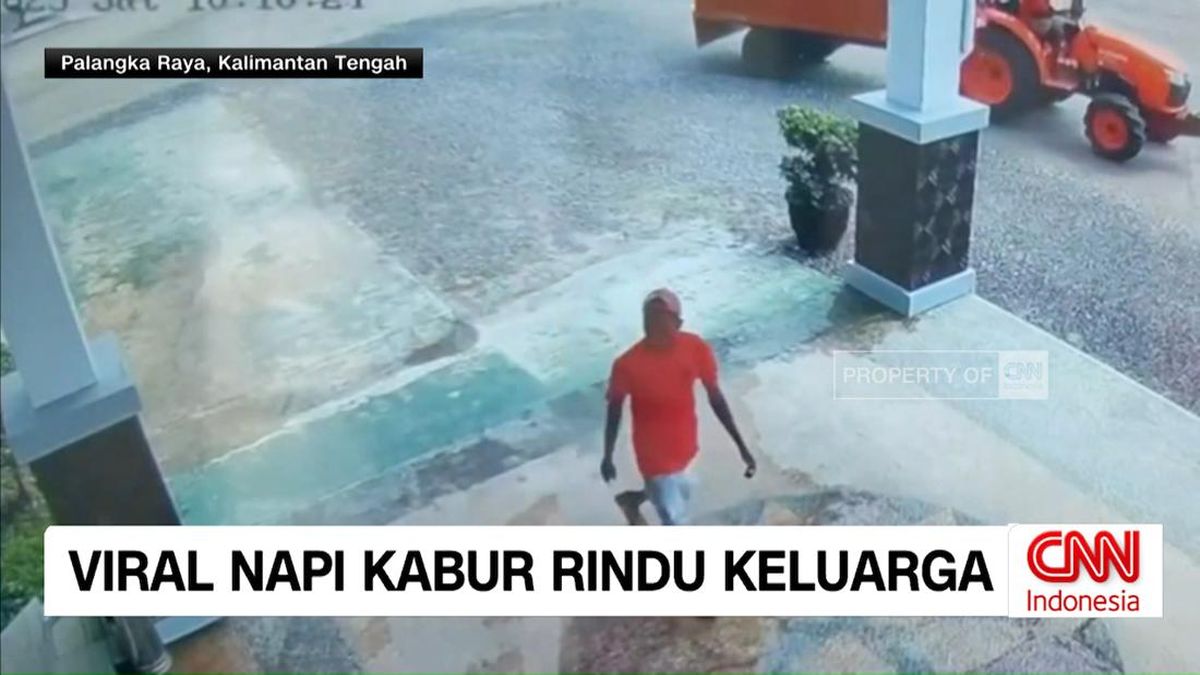“Excuse me,” says Robert Jenrick, sounding like the soul of British politeness, to a tall man in an enormous parka who has just stepped through a ticket gate on the London Underground without tapping his card. “Do you think it’s alright not to pay?”
The man mutters something about a knife. But Jenrick, the UK Conservatives’ justice spokesman, seems unperturbed as he keeps badgering him about his fare evasion. It is social media gold that Jenrick parlays into a classic conservative message on law and order.

UK politician Robert Jenrick confronts a man who failed to pay on the London Underground.Credit: Robert Jenrick
“It’s the same with bike theft, tool theft, shoplifting, drugs in town centres, weird Turkish barber shops [suspected of being money laundering fronts] all chipping away at society,” says Jenrick, as he turns to the camera. “The state needs to reassert itself and go after lawbreakers.”
More than 15 million people have watched the video. Millions more viewed Jenrick’s clips on immigration, antisemitism and sexual assaults, catapulting the workaday politician to be odds-on favourite to be the next leader of his party.
Something similar has happened on the other side of the Atlantic Ocean, where Zohran Mamdani has soared from an activist assemblyman to be the presumptive next mayor of New York City on the back of a slick social media campaign.
But in Australia? The country’s most-followed politician, Greens member Max Chandler-Mather, is no longer an MP after losing his Brisbane seat at the last election. His 188,000 followers on TikTok and 3.7 million likes on the video platform, about three times as many as the prime minister or Pauline Hanson, could not save him.

Robert Jenrick is generating a following with his savvy social media posts/Credit: Bloomberg
Both major parties’ primary accounts on Instagram have dropped off their posting sharply since the election, with Labor video series on things like the cost of living and housing stopping abruptly.
Fifteen years since the Arab Spring demonstrated the power of social media to shake governments, Australian political parties still view social media as an afterthought, especially outside election season.
Chandler-Mather is in some ways a poor messenger, given his loss, but he insists there are longer-term risks from politicians’ lack of engagement with voters on social media platforms.
“Australia’s going down the pathway of this sort of slow disengagement,” says Chandler-Mather. “Like, the number of people disengaging from politics increases every year. The number of people who feel sort of distrustful of politics increases every year.”
Tim Doyle, a marketing savant who has done contract work for Labor in the past and now leads telehealth company Eucalyptus, says Australian political parties are behind much of the Western world.
“They also only fire up the engine, which needs to be always on, about six weeks before an election,” Doyle says.
Where an American politician like Mamdani might throw himself into the ocean fully clothed in midwinter as he declares “I’m freezing… your rent”, Australian MPs play it safe, Doyle says.
“Politicians are terrified of being vulnerable and that’s the essential thing for social media,” he says. “They have no idea what engagement matters. They preach to their true believers, who like and share their content, but that does nothing to convince the undecided voters they need.”
Good social posts, he says, “should make your true believers a little bit uncomfortable.”
Only a handful of politicians tiptoe into the stunts and trends that might distinguish them online from the parade of slick brand videos and AI-generated slop.
Dan Repacholi, the MP for the Hunter in NSW, has, for example, posted videos with fake wounds to promote safety in the mining industry and tells men to “watch your nuts” as part of his role as a men’s health envoy. One Nation’s Please Explain cartoon has flourished online, but is between seasons. And Keith Wolahan, a Liberal MP who did extensive social media directed at Chinese-Australian voters, lost his Melbourne seat at the election.
Loading
But most MPs have only a few thousand followers, far fewer than niche hobby influencers, and fill their feed with screenshots of press releases, clips from television interviews and awkward, unedited speeches about the opening of local facilities.
One Labor MP, speaking on condition of anonymity, says the government has no unified social media strategy outside of elections. “People just do their own social media,” the MP says. “After coming to government, I just don’t have the time.”
Former Labor campaign strategist Megan Lane says Australia’s compulsory and preferential voting system means that politicians here can use social media differently than other countries.
There is no need to persuade voters to back a candidate in a primary, to bring disengaged people to a booth on polling day, or to tack to extremes because preferential voting tends to bring those ballots back to the parties in the centre. Politics is also less polarised, making it less likely to be picked up by an algorithm online.
“Instead of exciting rusted-on supporters to drive up voter turnout, Australian politicians are essentially focused on persuading punters that they are the least bad option,” Lane says.

Max Chandler-Mather’s social media success did not save him at the last federal election.Credit: Alex Ellinghausen
Mainstream media too still has huge influence. Seven’s Sunrise breakfast television program, for example, had a national average audience of 399,000 people as of July 16, according to figures from industry measurement provider Virtual Australia.
Morning interviews often draw further reporting from outlets, as do scoops in newspapers, multiplying their audience throughout the day.
But another dynamic is staffing. Political staffers on both sides of politics, who were not authorised to speak publicly, said social media was typically the responsibility of the most junior person in an MPs office. Career progression required going into policy development or traditional public relations.
“They all think about traditional media all the time and never social,” Doyle says of politicians, who are in their mid-40s on average when elected, according to data from the Parliamentary Library.
Jenrick’s approach is different. The MP employs a 21-year-old called Dov Forman to film his videos. Uniquely among political staffers, Forman is a social star in his own right who racked up millions of views filming the stories of his great-grandmother, a Holocaust survivor, during the pandemic.
His expertise is evident in his style. Where most Australian MPs talk straight into the camera, Forman’s videos for Jenrick are frenetic. His 58-second clip on fare evasion has 33 jump cuts.
There is a risk in getting social media wrong, though. “It’s a personal choice,” says the Labor MP. “How do you get people to focus on your message without turning yourself into a clown?”
“Some people in the crossbench are happy to veer towards silly stuff but if you want to be serious in government I don’t think it’s worthwhile.”
Loading
Chandler-Mather, the former Greens MP who developed a huge social media following, disagrees.
“The idea that ‘We’re a party of government, and so we can’t propose anything other than tinker around the edges’ is a completely self-serving argument,” Chandler-Mather says.
He argues that politicians from the major parties lack the charisma and appealing messages that work online. “To be honest, the calibre of Australian politician isn’t fantastic,” Chandler-Mather concludes. His loss, he says, was a result of major party preferences and being outspent.
In defeat, he has lost none of his faith that people becoming dissatisfied with government will need the Greens’ ambitious policy solutions. And social media, Chandler-Mather is confident, will be the way to reach them – for either him, or the right.
With Olivia Ireland.
Most Viewed in Politics
Loading



